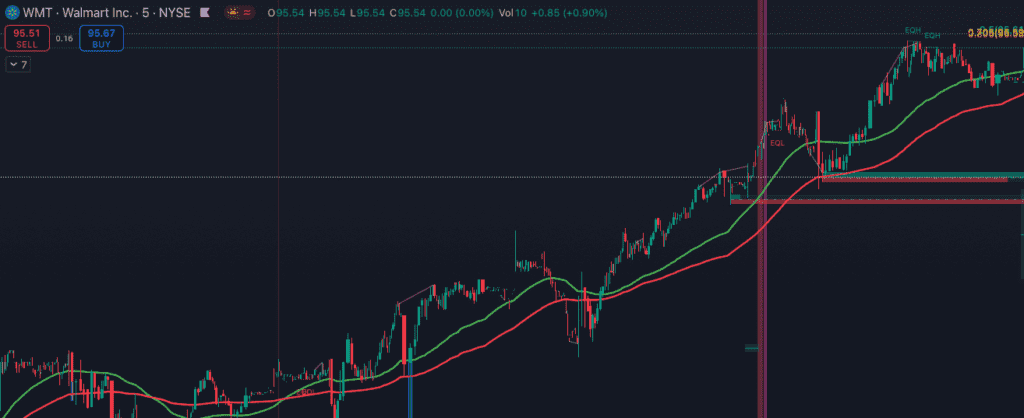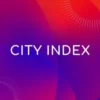How to Find a UK Trading Platform for Beginners
Here on Trading Brokers, we often compare picking the right trading broker in the UK to shopping for the perfect car—it’s not just about looking good on the surface. You want reliability, features that match your needs, and, most importantly, a broker you can trust with your hard-earned cash.
As someone who’s spent years navigating the trading world (and making my fair share of mistakes along the way), I’ve come to understand what really matters when choosing a UK trading broker. This guide breaks down everything you need to consider before hitting that “Sign Up” button.
Here’s what to look for when choosing a trading broker for UK trading:
1. Regulation and Safety

This is the dealbreaker. A broker without proper regulation is like a car without brakes—dangerous and best avoided. For UK traders, the Financial Conduct Authority (FCA) is the gold standard. An FCA-regulated broker must follow strict guidelines to keep your funds safe, including client fund segregation and negative balance protection.
What to Watch For
- FSCS Coverage: FCA-regulated brokers offer up to £85,000 compensation through the Financial Services Compensation Scheme (FSCS).
- Global Protection: Dual regulation by entities like ASIC or BaFin provides extra layers of security if you trade internationally.
Why It Matters
- Your funds are secure and separate from the broker’s operating funds.
- Transparency ensures fair trading practices and reliable dispute resolution.
Beyond the FCA, it’s worth noting that some brokers are regulated in multiple jurisdictions. For instance, brokers regulated by the ASIC (Australia) or CySEC (Cyprus) also meet stringent compliance standards.
Tip
2. Range of Tradable Instruments

The markets a broker offers can greatly affect your trading opportunities. Beginners may start with forex or indices, but over time, you might want to diversify into commodities, shares, or even niche instruments like ETFs. Brokers with over 1,000 markets like ActivTrades, Pepperstone and of course City Index and IG (13,000+ and 17,000+ respectively!) give you the flexibility to test different strategies.
Why It Matters
- Different instruments have varying levels of volatility and risk.
- A broad selection means you won’t outgrow your broker as you expand your strategies.
Beyond the Basics
- Emerging Markets: Check if your broker includes trading opportunities in growing economies like Brazil, India, or South Africa.
- Niche Instruments: Want to trade soft commodities like cocoa or wheat? Look for brokers with strong agricultural offerings.
Tip
3. Low Fees and Tight Spreads

Trading fees aren’t always easy to spot. Some brokers dazzle you with tight spreads on popular forex pairs but sneak in high overnight financing fees or hefty withdrawal charges. Make sure you evaluate the total cost of trading, not just spreads.
Dive Deeper
- Forex Costs: Look for spreads starting under 1 pip for majors like EUR/USD and GBP/USD.
- Indices & Commodities: Compare spreads on popular indices like the FTSE 100 or commodities like gold to see if they’re competitive.
- Hidden Charges: Some brokers charge for deposits and withdrawals, especially when using wire transfers or e-wallets.
Why It Matters
- Tighter spreads mean lower costs per trade, which is crucial for day traders and scalpers.
- Transparent pricing allows you to calculate your potential profitability upfront.
Tip
4. Trading Platform and Usability

Your trading platform is your command center. Whether you’re setting up charts, executing trades, or tracking market trends, a platform that’s easy to use and packed with features can make your trading experience smoother.
Why It Matters
- A poorly designed platform can lead to costly errors.
- Access to charting tools, alerts, and technical indicators helps you make better decisions.
Not all trading platforms are created equal. For a seamless experience, you’ll want a platform that balances simplicity with depth. For instance, MetaTrader 4/5 and cTrader are favourites among algorithmic traders, while TradingView is ideal for those focused on in-depth technical analysis.
Tip
5. Execution Speed

Ever clicked “Buy” only to see the market move before your trade is executed? That’s slippage, and it can wreak havoc on your strategy. A broker with fast execution speeds ensures your trades are filled at the price you want, especially during volatile market conditions.
Why It Matters
- Slow execution can lead to missed opportunities and unexpected losses.
- No Dealing Desk (NDD) brokers typically offer faster, more transparent pricing.
Execution speed often goes unnoticed—until it costs you money. Market volatility can cause prices to shift in milliseconds, and the slower your broker, the more you risk slippage. ECN (Electronic Communication Network) brokers excel here, offering direct market access without dealing desk interference.
Tip
6. Educational Resources

Even the most experienced traders never stop learning. A broker that offers educational tools like webinars, tutorials, and market analysis can be invaluable for both beginners and seasoned pros.
Why It Matters
- Access to quality education helps you improve your strategies and stay updated on market trends.
- Some brokers even offer one-on-one coaching for premium accounts.
Good brokers know that informed traders are successful traders. The best brokers don’t just offer content—they create structured learning paths for traders at all levels. From beginner guides to advanced strategy webinars, a broker’s educational resources can save you months of trial and error.
💡 Tip: Brokers like XTB and ActivTrades are known for their comprehensive educational offerings.
Tip
7. Risk Management Tools

Risk management tools aren’t just a luxury—they’re essential. Guaranteed Stop-Loss Orders (GSLOs) are particularly useful for beginners, as they lock in your losses even during volatile market gaps. Not all brokers offer these, so choose wisely if capital protection is your priority.
Why It Matters
- Proper risk management tools can mitigate losses in volatile markets.
- Negative balance protection ensures you never owe more than your account balance.
Tip
8. Leverage and Margin Requirements
Whilst not a requirement as such, or a ranking criteria we should say, it’s definitely worth mentioning as leverage can amplify both your profits and your losses. In the UK, retail traders are capped at a 1:30 leverage under FCA regulations, but some brokers offer higher leverage for professional accounts.
Why It Matters
- Leverage allows you to control larger positions with less capital.
- Understanding margin requirements helps you avoid margin calls or forced closures – this will happen when your account needs more capital in order to keep a trade open (i.e. the trade is above your position size allowance).
Leverage is a double-edged sword—amplifying both profits and losses. While the FCA caps retail leverage at 30:1, some brokers offer significantly higher limits for professional accounts. Beginners should tread carefully with leverage and start small.
Tip
9. Customer Support

Imagine having an issue with your account just as you’re about to execute a critical trade. Reliable customer support can be a lifesaver. Look for brokers offering 24/5 multilingual support through live chat, email, or phone.
Why It Matters
- Prompt support ensures issues are resolved quickly, so you don’t miss trading opportunities.
- Multilingual options cater to traders from diverse backgrounds.
Customer service is one of those features you don’t realize you need until you’re stuck. It’s one of those crucial factors that we have to test before any recommendation for a broker is given on this site.
More to Think About
- FAQ Quality: A good FAQ section can save you time when troubleshooting common issues.
- Response Time: Test live chat before committing—response times should be under a minute during peak hours.
- Dedicated Account Managers: Some brokers offer personal account managers for higher-tier accounts, which can be invaluable for new traders.
Tip
10. Account Types and Deposit Requirements

OK, this is always an interesting one, some brokers have big deposit requirements like IG (£250) and others have no minimum deposit requirement like Pepperstone but one isn’t necessarily better than the other simply by that factor alonw. Different brokers cater to different types of traders. Some offer multiple account types with varying spreads, commissions, and features. It’s also worth checking the minimum deposit requirement, especially if you’re starting with limited capital.
Why It Matters:
- Flexible account options let you choose a setup that aligns with your trading style.
- Low deposit requirements make it easier to start trading without overcommitting financially.
Different brokers cater to different types of traders. Some offer multiple account types with varying spreads, commissions, and features. It’s also worth checking the minimum deposit requirement, especially if you’re starting with limited capital. beginners might enjoy no deposit requirement whilst more advanced / seasoned traders might prefer a larger deposit, it’s all a matter of preference.
Tip
Our Criteria
These top criteria for choosing a trading broker is just part of the effort that the team puts in daily into finding and reviewing brokers to ensure that Trading Brokers not only promotes the right brokers, but navigates the world of trading so that we can accurately guide you in your journey.
Choosing the right UK trading broker is about more than just flashy websites or big promises. It’s about finding a platform that fits your trading goals, offers transparency, and provides the tools you need to succeed.
If you’re just starting out, we recommend Pepperstone for its low fees, user-friendly platforms, and robust educational resources. Ready to find your perfect broker? Explore our detailed broker reviews and comparisons to make an informed decision.
- How to Switch Trading Platforms - August 13, 2025
- Top 5 Trends for Trading Platforms in 2025 - January 31, 2025
- Best Trading Platforms for Investing - January 3, 2025















